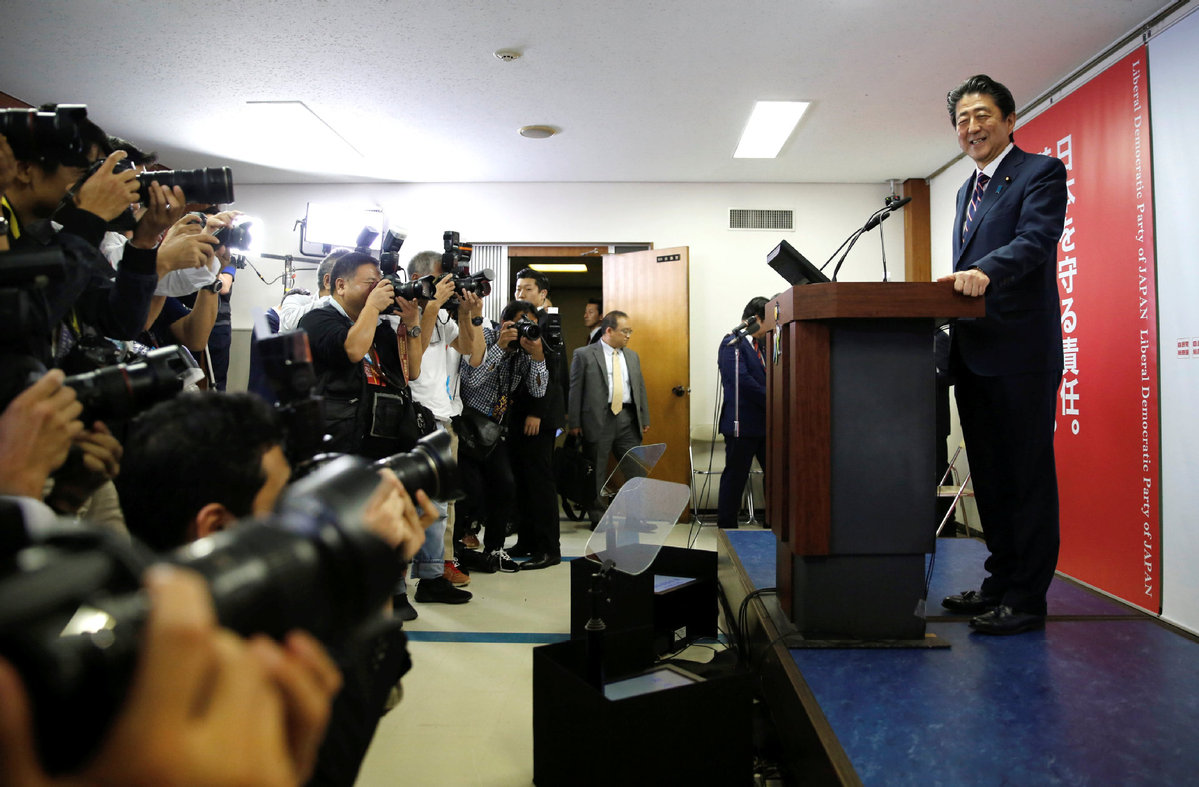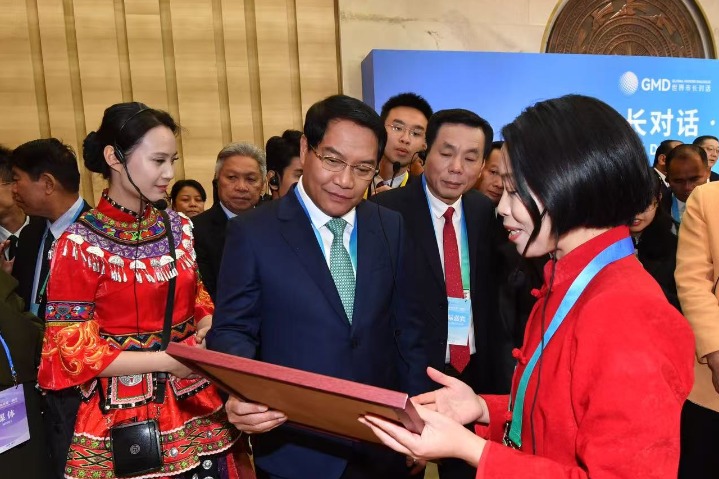By winning party polls, Abe raises both hope and fear: China Daily editorial


Abe has long sought to revise Japan's pacifist Constitution ignoring the strong domestic and international opposition. And now that he has been re-elected leader of his ruling Liberal Democratic Party, which paves the way for him to serve as Japan's prime minister for another three years, he may try to push forward what critics call Japan's "remilitarization" plan.
There is reason for such fears, because Shinzo Abe has already pushed through controversial legislation that gives Japan Self Defense Forces the right to "collective self-defense", or defend/support allies in combat overseas.
Of course, Abe's claim that he would try to keep the constitutional clause that prevents Japan from waging an offensive war may somewhat help ease the regional countries' fears that Japan may embark on the road to militarism again.
But continuous efforts by rightwing forces in Japan to whitewash history and deny Japan's wartime atrocities - such as the Nanjing Massacre and the pain and suffering they caused to hundreds of thousands of Asian women by forcing them into sexual slavery - will continue to haunt Japan's neighbors, including China, that Japan may be moving closer to becoming a military power again.
As such, in the coming three years, Abe will find it extremely difficult to convince Japan's neighbors about his good intentions if he forges ahead with his plan to amend the country's pacifist Constitution.
Yet there are signs that Sino-Japanese relations are moving toward the right track, with Abe expected to pay an official visit to Beijing later this year - the first by a Japanese leader in seven years - which coincides with the 40th anniversary of the signing of the China-Japan Treaty of Peace and Friendship. There are also reports that the world's second- and third-largest economies are ready to cooperate, rather than compete with each other, on agriculture and infrastructure projects in other countries, particularly along Thailand's Eastern Economic Corridor.
That their economies are highly complementary and they both advocate free trade may make it possible for the two sides to shelve their differences while they pursue to maximize the common interests.
Abe recently said that he hopes "to raise Japan-China relations to a new stage" and he is "firmly determined in this regard". As convincing as he may sound, there is no reason to take his remark at face value. We hope, though, he will match his words with concrete actions and thus contribute to improved Sino-Japanese relations.
Today's Top News
- China reports 5% GDP growth in 2024
- Mainland to resume group tour services for Fujian, Shanghai residents to Taiwan
- Xi's special representative Han Zheng to attend Trump's inauguration
- US allegations, reports of cyberattacks rejected
- Telecom fraud fight intensified
- Apps urged to improve content, services






























